This is for everyone regardless of relationship status. Be sure to check out her YouTube page for tips and advice in her bite size videos.
|
A great conversation with psychotherapist Esther Perel, reflecting on a number of topics such as attitude to relationships, desire, love and dating. This is for everyone regardless of relationship status. Be sure to check out her YouTube page for tips and advice in her bite size videos.
1 Comment
The New Year is a natural and popular time for renewed focus on personal development and desired life changes. Often intentions fail to materialise for a combination of reasons including lack of concrete plans and sustain application.
When it comes to counselling and psychotherapy, the desire for change, the desire to be happier, to be free from emotional pain requires an accompanying understanding and mind set of tolerance to emotional pain and discomfort. Whilst current life difficulties invariably result in distress such as depression and excessive anxiety, dealing with the causes of the distress also brings contact with denied and unprocessed feelings and emotions. This is also very difficult and can seeming overwhelming to even come near it which can be part of the reason for distress in the first place as coping mechanisms used to help people deal with the emotional pain unwittingly causes the intensity of the feelings or lack of feelings to build over time to the point that it becomes unsustainable. The healing aspect of therapy where experiences need to be processed means a different type of emotional pain and discomfort is encountered. With that it highlights the impasse people often get stuck between where the symptoms such as depression and OCD are down to the difficulty in dealing with the root causes of their distress such as death of a loved one or childhood trauma. Faced with such a situation there is an understandable desire to be relieved from the pain and ironically therapy which is a space of healing can at first glance be seen as a space that doesn’t evoke refuge because it doesn’t represent a pain free option. Doing the work of dealing with a painful past means eventual contact with the pain carried from unprocessed feelings. This is one thing that needs to be highlighted more in that the work of healing as often it get worse in the short term before it gets better in the long term due to the process of facing up the past in all its persuasions including in no particular order - loss, shame, guilt, anger, sadness, mourning, acceptance. In the end it comes down to reaching a tipping point of being in a place to deal with the pain of the unknown future over the known pain of the past and present, either way there’s no pain free option when it comes making changes in your life and dealing with the emotional injuries and its legacy. For emotional wellbeing and improved health there is a need to learn how to regulate our emotions, particularly if it’s something that hasn’t been intuitively learned.
Often at the heart of emotional difficulties is the difficulty caused by people becoming overwhelmed by their emotions for one reason or the other. Therapy helps with the integration of unprocessed feelings, however in the short term there is a benefit to learning proactive coping techniques to help regain control and build self-confidence. Here are a few resources available through the NHS: http://www.nhs.uk/Conditions/stress-anxiety-depression/pages/ways-relieve-stress.aspx http://www.nhs.uk/Conditions/stress-anxiety-depression/Pages/mindfulness.aspx#different As a therapist I’m glad that our emotional and mental wellbeing is getting more and more attention. Working with a therapist to address issues being experienced allows a fuller life to be lived.
How counselling can help? Through creating a safe and trusting working relationship where anything and everything can be talked about, without judgement, the problems that have arisen in life can be worked through. Therapy can be used to deal with the impact of emotional and mental distress caused by current stressful circumstances or historical life experiences such as, anxiety, depression, financial debt, relationship problems, self-esteem difficulties, traumatic experiences and work related issues. Therapy is often life changing as the insight and growth gained becomes a means for making a change in different areas of your life, for instance:
If you are interested or know anyone who wants to learn more about how counselling can help please ask them to get in touch. I’m happy to answer any questions. I’m a BACP accredited counsellor / psychotherapist. I work, face to face or online, on a short and long term basis depending on individual needs to help with mental and emotional difficulties. I currently have availability to see clients. Also, if you are worried about someone you know and are wondering how to have a conversation about it see this link for guidance. 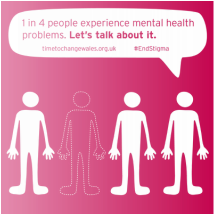 The sharing of this information is long overdue! From conversations I’ve had socially over the years, and an increasing amount of enquiries I’ve been receiving professionally recently has involved people being worried about or seeing a loved one not well. Either through noticing changes in behaviour like loved ones becoming more distant, acting out or clear displays of psychological distress. This can be very distressing in itself due to the feeling of helplessness it can create. Rather than reinventing the wheel I thought it was best to share an article I came across which I feel has put together a good user friendly guide on how to approach the issue and start a conversation sensitively and compassionately. As often the difficulties being experienced create feelings of shame. Below are two sections to give you a bit of a taster from the Counselling Directory website.... Worried about someone else? If you're worried about someone else's mental health, then it's important to do what you can to help. The question is - what can you do? You might wonder if it's even your job to get involved, or whether your interference will just make things worse. How do you even bring up the subject of mental or emotional health with a friend, family member, or colleague? Will they be insulted? Will they think you're being nosy? What if you push them further into denial or trigger even worse feelings and behaviours? Being worried about someone else's mental health and not knowing what to do can be extremely stressful. The action you take will depend on your relationship with this person and it will also depend on what kind of problem you suspect they have. While every situation is different, there are some practical guidelines you can follow for knowing what to say and where to get help. The more you know about mental health and counselling, the better position you will be in to offer informed advice and get the support that person needs. Remember, it helps to feel like someone else cares. Without support, compassion and empathy, mental illness can be a very lonely road. Should I talk to them? Yes - if you're worried about someone else's mental health then the best thing you can do is talk to them. You never know, they might have been struggling to bring up the topic with you. Often the hardest part of having a mental illness - whether diagnosed or not, is not knowing how to talk about it. Living with a mental illness can be a lonely experience. What if people make judgements? What if it affects employability, or ruins relationships and friendships? While you may not know (or ever know) how this person is feeling inside, you can help them by asking questions and inviting them to talk about how they feel. Even if they're not ready to open up to you, the interest you show in them will help them see that someone is there to listen. For the full article please click here I came across these articles by Pam Gawler-Wright a little while ago and found them very thought provoking.
Have a read and think about how many unwritten, unspoken contracts influence your relationships with people or expectations in your life? If you recognise yourself as displaying codependent behaviour in some shape or form then I wonder where on the Karpman's Drama Triangle you are on. Lynne Forrest's Overview of the Drama Triangle explains and describes the dynamics of the concept very clearly. There's also a good succinct article at ways of breaking the drama triangle. I came across this article on twitter and found it encapsulates in many respects the counselling journey depending on ones approach or needs - http://www.findingthegracewithin.com/?p=10699
The space provided by therapy is good and useful in many ways - a space to
think, reflect, feel, connect, disentangle and integrate and so much more to the greater end of living a more enriching and fulfilling life. As well as the immediate goal oriented solution focused aims many people specifically seek therapy for. Overall therapy is not a substitute for life though and beyond statistical evidence gathering the real measure of change and growth is how clients are in sessions, how they make changes and deal with challenges as life continues to evolve. Similar to meditation for instance where on first impressions it can be thought of as a divorce of oneself from everyday reality, it actually serves to connect you more. And arguably, therapy should be doing that for clients. What constitutes change and process is always tricky as it can be very subtle but hugely significant in the context of that person’s life. In the current climate of evidence-based practice, what constitutes evidence and how are these subtleties to be truly accounted for can and equally recognised is subject to much heated debate. Crucially what it is the evidence being judged against? Unashamedly naive and altruistic, however the success of therapy for me is really about how I help my clients grow and live a more fulfilling life despite the difficulties they have encountered in the past and or present time. This intrinsically includes outcomes which forms part of narrow goal oriented way of working such as brief solution focused. On the other hand, organic transformative change involves an engagement and change on so many levels – understanding of what influences their reactions and subsequent behaviour, emotional intelligence, being, doing, feeling, articulation of thoughts and feelings, physiological reactions, reflecting, assertiveness, etc, etc. As much as it may seem cliché to examine past experiences and relationships when dealing with relationally oriented difficulties we can’t get away from examining how we came to be the person we are today if we are looking for transformative change. Also it’s a question of what we are ready for or have the capacity to deal with at that particular period in time.
I have found that often there is a deep desire for things to change but the starting point is seen as from the present onwards. Obviously therapists categorise this as an emotional defence, however I also see it as lack of awareness of the myriad forms of developmental maturity required - emotionally, psychologically, physically, socially and spiritually. Although not everyone recognises or actively engages with the spiritual self, as a therapist I feel it’s important to acknowledge and work with it if it’s important to the client. There can be an expectation that our chronological age corresponds simultaneously to equal maturation in all the different areas. This in itself I feel causes a hell of a lot of anger and frustration at oneself because there’s the expectation of handling a situation better in line with one’s age. But like many skills or ways of being that is now second nature, it has become second nature through nurturing or through repeated experiences and behaviour. This is where therapy comes in by helping a client explore the past, implicit and explicit psychological education as well as the active experience of being and doing, with another person. The past can’t be changed but its influence can once its tangled connections in how we are in the present can be acknowledged, experienced and worked through – non-actively and/or actively. |
Categories
All
|

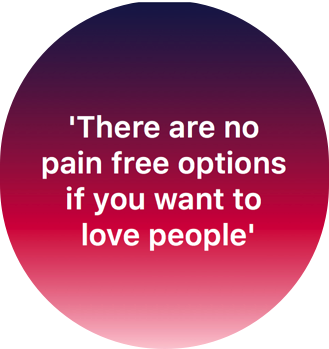
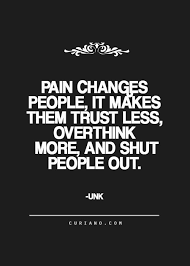
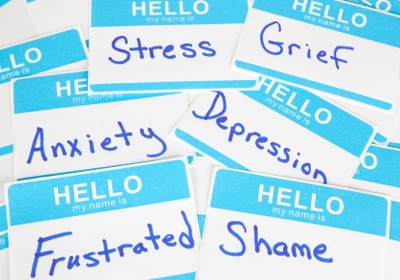


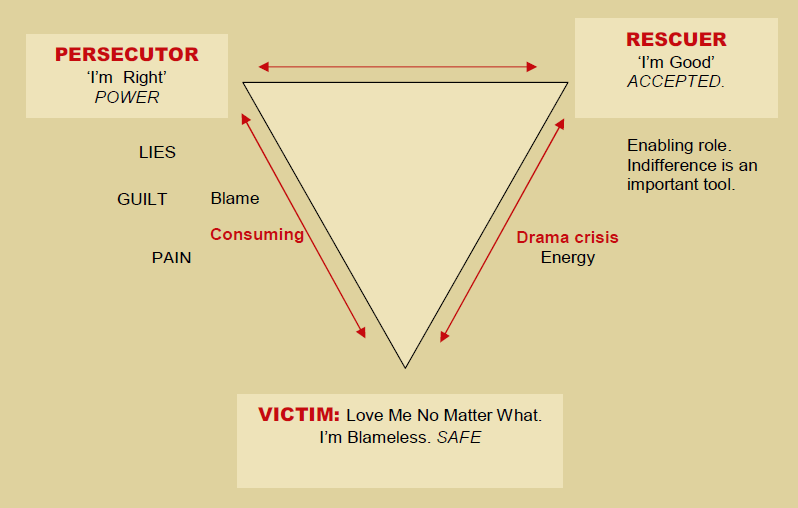
 RSS Feed
RSS Feed
